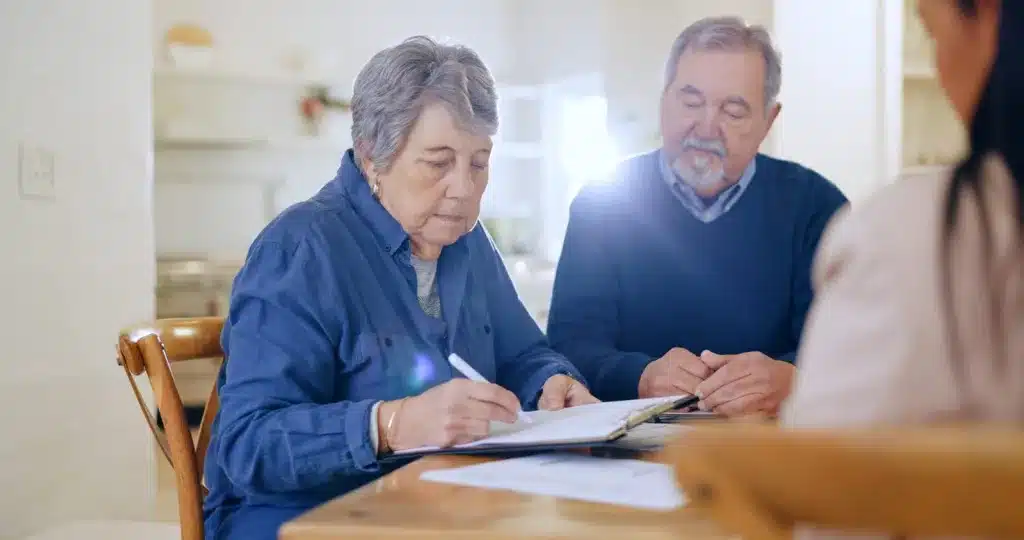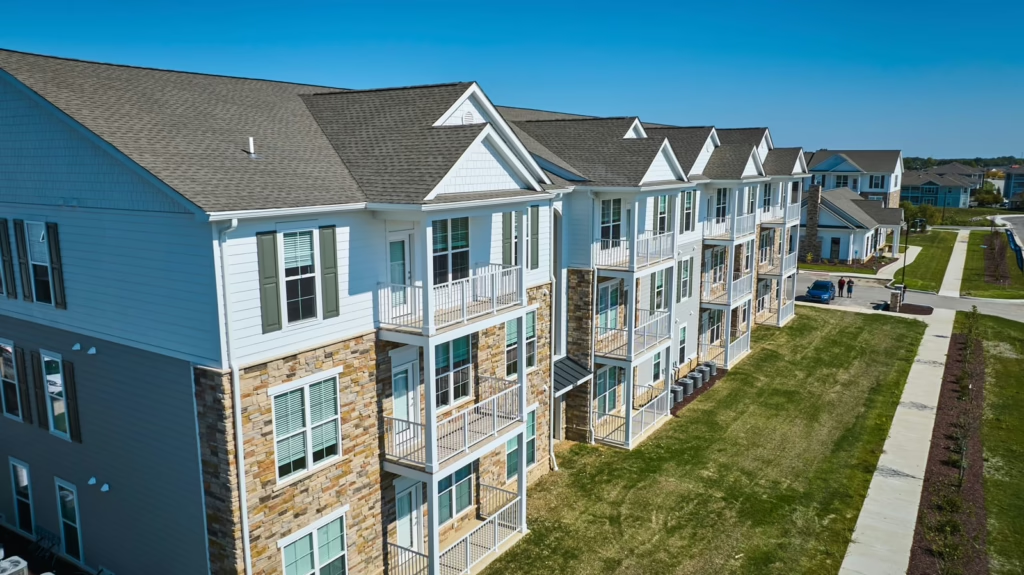What Are the Changes Being Made to Florida’s HOA and Condo Laws in 2025?
As we move into 2025, significant changes to Florida’s condominium laws through HB 913 are set to transform how these communities operate and ensure the safety of residents. These comprehensive updates are the result of actions taken by Florida lawmakers in response to recent events. The new law aims to enhance structural integrity oversight, improve financial stability, and modernize governance processes within condominium associations.
While many of these policies will strengthen community management, they don’t come without implementation challenges. The new law builds upon existing law, including the Florida Statutes and the Florida Condominium Act (Chapter 718), which govern Florida condominiums and set forth legal obligations for associations, reserve funding, and transparency. Additionally, the Department of Business and Professional Regulation (DBPR) will have expanded authority, including oversight of milestone inspections and reserve reporting. For HOAs with 1,000 or more parcels, the law now mandates the preparation of audited financial statements and the maintenance of a website to provide access to official records. For HOAs and condo associations, understanding these changes is crucial for compliance and effective community governance. RTRLAW is here to guide you through these legal adjustments and ensure that your operations align with all the new requirements stemming from HB 913.
This article is for informational purposes only, does not constitute legal advice, and does not create an attorney-client relationship.
Introduction to HB 913
House Bill 913 (HB 913) marks a pivotal shift in how Florida condominium associations are governed, with sweeping new rules designed to enhance safety, financial stability, and transparency for all stakeholders. Passed in 2025, this legislation was crafted in direct response to the Surfside condominium collapse, underscoring the urgent need for more robust oversight and accountability within condominium associations. Effective July 1, 2025, HB 913 aims to protect unit owners and ensure that board members manage association property and funds responsibly, with a clear focus on long-term sustainability.
A cornerstone of HB 913 is the introduction of mandatory milestone structural inspections. These inspections, conducted by licensed engineers or architects, require a thorough evaluation of a building’s structural components—including foundations, walls, and roofs. Starting January 1, 2025, milestone structural inspections are mandatory for buildings that are three stories or taller and over 25 years old. The resulting inspection reports must be submitted to local building officials and made available to unit owners, ensuring that any critical or major repairs are identified and addressed promptly. Condominium associations are also responsible for hurricane shutter removal and reinstallation costs unless specified otherwise in the declaration. This process is designed to safeguard residents and maintain the structural integrity of association property.
The bill also brings significant changes to reserve funding. Condominium associations are now required to conduct a structural integrity reserve study every 10 years, providing a detailed analysis of reserve funds and a plan for future reserve contributions. Starting December 31, 2024, associations are prohibited from waiving reserves for critical structural items identified in a reserve study. Additionally, the maximum amount for items requiring statutory reserves has been raised from $10,000 to $25,000 under the new laws. The new rules strictly limit the ability to waive reserve contributions, ensuring that associations maintain adequate funding for deferred maintenance and capital improvements. This approach is intended to prevent financial shortfalls and reduce the reliance on special assessments for major repairs.
In addition to these safety and financial measures, HB 913 modernizes governance by introducing new requirements for electronic voting and financial reporting. Starting January 1, 2025, all associations with 100 or more units must maintain a website to improve transparency and provide unit owners with access to official records, including governing documents, financial reports, and meeting minutes. Condominium associations must also publish detailed financial reports within specific timeframes to ensure financial transparency. Associations must now offer secure electronic voting options, making it easier for unit owners to participate in board meetings and important decisions. Furthermore, new regulations require boards to provide a substitute budget when the proposed annual budget exceeds 115% of the previous year’s budget. The law also mandates enhanced financial reporting requirements to further promote transparency and accountability.
Finally, HB 913 strengthens insurance requirements by mandating that associations carry property insurance covering the full insurable value of the building. Additionally, all condominium unit owners are now required to carry HO-6 insurance to cover personal property and liability, enhancing financial protection for both the association and individual unit owners. Financial accountability regulations also prohibit HOAs from using debit cards for association expenses, ensuring stricter oversight of financial transactions. This ensures comprehensive protection for both the association and individual unit owners, reducing risk and supporting financial stability.
Overall, HB 913 represents a comprehensive overhaul of Florida’s condominium laws, setting new standards for safety, financial management, and transparency. Unit owners, board members, and community association managers need to understand these new rules and ensure full compliance to protect their communities and avoid potential penalties.
Ashley Wheeler
Tiffany Colbert has been an incredible asset in navigating several complex legal matters for our company. Her expert advice and input were invaluable in guiding us through tough issues, and she consistently provided clarity and direction that led to positive outcomes. Tiffany’s professionalism, attention to detail, and deep understanding of the law have made working with her a seamless and successful experience. I highly recommend her for anyone in need of strong, reliable legal counsel!
Overview of Key Changes in 2025
The updates to Florida’s condo laws through HB 913 that became effective in 2024 and continue into 2025 are designed to address several critical areas, including structural safety, reserve funding, and resident participation. The new law applies to both condominium associations and homeowner associations, and is intended to clarify rules and improve governance for all community associations. Some of the most notable changes are provided in a detailed summary below:
Enhanced Structural Integrity and Reserve Funding Requirements
In response to tragic events like the Surfside collapse, Florida’s legislation is significantly tightening rules around structural oversight and financial preparedness for condominium associations. Key changes include:
- Mandatory Structural Integrity Reserve Studies: Associations must now conduct comprehensive structural integrity reserve studies every 10 years, with the first studies required by December 31, 2024. These studies must include an analysis of the replacement cost of major structural components and a cash flow plan projecting future funding needs over a multi-decade period. This change ensures that all community members are protected through proper identification of potential maintenance needs and adequate funding mechanisms.
- Milestone Structural Inspections: New laws mandate milestone structural inspections, also referred to as milestone inspections, for buildings three stories or taller, with the first inspection required at 30 years old (25 years for buildings near the coast) and every 10 years thereafter. These inspections are subject to professional regulation, requiring licensed engineers or architects to ensure compliance with safety standards. Associations must address any identified issues promptly and maintain detailed records of these inspections.
- Fully Funded Reserve Requirements: Associations are now required to maintain a reserve account and can no longer reduce reserve contributions or waive funding for critical repairs. This ensures that communities have adequate funds for long-term capital improvements and repairs. This eliminates the practice of deferring maintenance costs through special assessments and provides greater financial stability.
- Professional Oversight and Compliance: Alongside these structural changes, the legislation also introduced enhanced requirements for professional management and accounting standards to ensure proper governance.
These new requirements are designed to prevent deferred maintenance expenses from accumulating and threatening building safety.
These structural and financial reforms pave the way for improved governance processes, which is the next focus of the legislative updates. As we move from safety and financial matters, the focus shifts to modernizing board operations and increasing member participation.
Improved Electronic Voting and Member Engagement
The HB 913 updates place a strong emphasis on enhancing member participation and modernizing governance processes within condominium associations. These changes are designed to promote accessibility and fairness in community decision-making through innovations such as:
- Electronic Voting Systems: Condo associations can now implement electronic voting systems, enabling unit owners to participate more easily in decision-making processes, including voting on special assessments and amendments to governing documents. Certain actions, such as special assessments and amendments, require unit owner approval based on voting interests. Voting interests and total voting interests determine the outcome of votes and quorum requirements at the annual meeting and board meeting. Electronic voting procedures have been established, allowing unit owners to vote online when a sufficient petition is filed.
- Enhanced Voting Accessibility: To encourage broader participation, the new laws require associations to provide secure, reliable, and accessible electronic voting options when requested by unit owners. This helps to foster greater community engagement and more representative decision-making.
- Transparent Voting Processes: The law expands requirements for voting transparency, stipulating that associations must provide reasonable notice and opt-out procedures for electronic voting systems. Associations are required to provide written notice of meetings, and may also use electronic notice or electronic transmission to communicate with members. This promotes greater accountability and allows members to participate confidently in community decisions.
- Strengthened Record-Keeping: These governance enhancements require associations to maintain comprehensive official records, including governing documents, financial reports, and meeting minutes, with improved access for unit owners upon request.
In addition, meetings must have a designated physical location, even if virtual or hybrid participation is allowed, to ensure compliance and accessible participation for owners and board members.
These governance improvements are designed to ensure that associations operate democratically and that community members have meaningful input in their management. Building on these participation changes, the legislation also introduced new measures to protect residents through enhanced safety and insurance requirements.
Strengthened Insurance Requirements and Safety Protections
Several new provisions focus on protecting residents’ safety and ensuring comprehensive coverage within condominium communities:
- Comprehensive Insurance Coverage: Associations must maintain property and liability insurance for common areas based on the full insurable value of the property, providing greater protection for unit owners’ investments. This creates a stronger safety net for community assets and reduces individual exposure to catastrophic losses. Property managers and the management company must comply with the terms of the management contract and ensure the association may take necessary actions to protect residents and property.
- Unit Owner Insurance Requirements: Unit owners are now required to carry HO-6 insurance covering personal property and liability, ensuring adequate protection in case of accidents or damages. This coordinated approach provides comprehensive coverage across the entire community.
- Enhanced Fire Safety Systems: The legislation requires associations to upgrade fire safety systems, including sprinklers and evacuation plans, to enhance safety and emergency preparedness. The new law also grants emergency powers to the board, allowing them to take urgent action in the event of a disaster, such as accessing reserve funds or requiring evacuations without formal owner approval. Unit owners must approve any special assessments or loans through a vote, as boards can no longer levy them without membership approval under HB 913. These improvements provide critical protection for residents and help prevent potential tragedies.
These safety protections ensure that community members have comprehensive coverage and emergency preparedness measures in place. Understanding and implementing these changes can be complex, but RTRLAW is here to help condo associations navigate these new regulations successfully. As condo associations work to comply with these new regulations, understanding broader restrictions on management behavior is also essential.
What Condo Association Boards Cannot Do in Florida?
In Florida, condominium association boards must adhere to specific laws designed to protect unit owners’ rights and ensure proper governance. Board members must act in accordance with the law and may consult the association’s attorney for guidance on compliance and policy decisions. New rules include a 14-day notice requirement for fine hearings in HOAs, ensuring that owners have adequate time to prepare and respond. Understanding these restrictions is crucial for maintaining fair and lawful management practices within condominium communities. Here are key prohibitions boards must observe:
- Improper Reserve Fund Usage: Boards cannot use reserve funds for purposes other than their designated capital improvements and repairs. Diverting these funds for operational expenses or other unauthorized purposes violates the new funding requirements and puts the community at financial risk. Associations may not misuse association funds, must provide financial information to owners, and must follow proper procedures for collecting unpaid assessments and levying a special assessment.
- Discrimination in Governance: Under fair housing laws, boards cannot discriminate against unit owners based on protected characteristics during any governance processes, including voting, meeting participation, or access to community amenities and services.
- Denial of Record Access: Boards cannot unreasonably deny unit owners or parcel owners access to the association’s official records, including association documents, accounting records, bank statements, financial reports, annual financial reports, annual budgets, and the annual budget. Intentionally denying access to official records is now classified as a misdemeanor. Transparency in record-keeping is a fundamental right that supports informed community participation, and these official records must be made available as required by law.
- Waiving Mandatory Requirements: Boards can no longer waive reserve contributions or skip required structural inspections, as these safety and financial measures are now mandatory under HB 913. Attempting to bypass these requirements exposes the association to legal liability.
- Conflicts of Interest: Board members cannot make decisions that benefit them personally at the expense of the association or fail to disclose potential conflicts of interest. All decisions must be made in the best interests of the community and unit owners.
Associations may or association may take certain actions as permitted by law, but must respect the rights of parcel owners and ensure parcel owner participation in community decisions.
Understanding these prohibitions helps boards comply with the law and fosters fair and effective community management. Navigating these legal requirements and ensuring compliance can be complex, but RTRLAW is here to support condo associations in maintaining lawful and effective governance practices.
How RTRLAW Can Assist Condo Associations and HOAs
Navigating the new HB 913 requirements requires a thorough understanding of both the legislative changes and how they apply to your specific community. It can be a complicated and in-depth journey to understanding and compliance. Some provisions require condominium associations to cover legal fees for unit owners if a recall election is contested and fails, enhancing owner rights. RTRLAW offers comprehensive legal services to help condo associations and HOAs comply with these new requirements:
- Compliance Reviews: We provide detailed reviews of your community’s current practices to ensure compliance with HB 913 and related laws. Our team identifies areas that need adjustment and helps implement necessary changes for structural integrity, reserve funding, and governance processes. RTRLAW works closely with your management firm and community association manager to ensure financial transparency and compliance with the new law, helping to protect the interests of condo owners.
- Board Training and Support: Our attorneys offer specialized training sessions for board members to understand their new responsibilities and legal obligations under the updated laws, including structural oversight and electronic voting implementation.
- Reserve Study and Inspection Assistance: With expertise in the new requirements, we assist associations in coordinating required reserve studies and milestone inspections, ensuring compliance with deadlines and proper documentation.
- Legal Representation: Should legal issues arise related to HB 913 compliance or governance matters, RTRLAW is ready to provide strong representation to protect your interests and those of your community.
The HB 913 updates to Florida’s condo laws bring significant changes that aim to improve safety, financial stability, and member participation within condominium communities. For condo associations and HOAs, adapting to these new regulations is essential for protecting residents and maintaining legal compliance. RTRLAW is committed to helping you navigate these changes effectively, ensuring that your community thrives under the new safety and governance requirements.
The information provided here is for educational purposes only and does not constitute legal advice. It is intended to inform condo owners and association leaders about their rights and responsibilities under the new law.
For more information on how RTRLAW can assist with these HB 913 updates, give us a call. Our experienced real estate litigation attorneys are here to provide the guidance and support you need to comply with these important changes and maintain a safe, well-managed community.


 CALL US NOW
CALL US NOW TEXT US NOW
TEXT US NOW



























